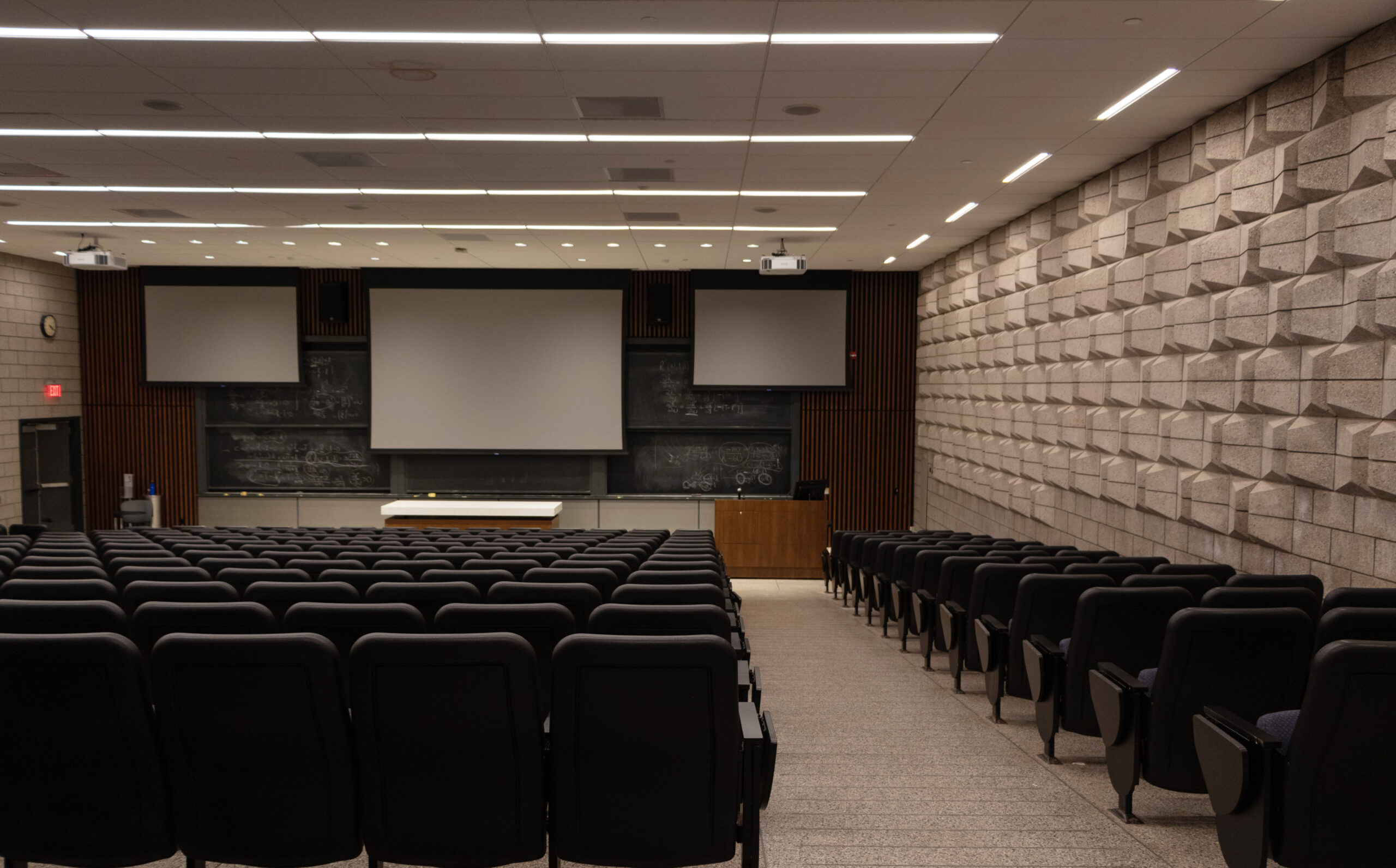AI student groups grow amid debates spanning clubs and classrooms
Student-led organizations focused on artificial intelligence — such as the Yale’s Artificial Intelligence Association, the Yale Artificial Intelligence Alignment and the Yale Artificial Intelligence Policy Initiative — are receiving increased interest.

Zoe Berg
As students join Yale’s extracurricular scene, they are met with numerous organizations focused on artificial intelligence — such as the Yale Artificial Intelligence Association, the Yale Artificial Intelligence Alignment and the Yale Artificial Intelligence Policy Initiative.
Interest across all three similarly named clubs — known as AIA, YAIA and YAIPI — has surged in the past year, with increased numbers in membership and mailing list sign-ups. The clubs offer a variety of activities, from weekly meetings and projects to week-long fellowships.
“Our priority is to bring a very informed perspective on AI and its trajectory. I think what we offer for people who join our club and attend our meetings is that they can walk away knowing how AI works, how we might expect it to grow, how we might control it, and we answer these questions in some technical depth and in a general sense as well,” Yejun Yun ’28, co-founder of the Yale Artificial Intelligence Alignment, said.
YAIA focuses on the potential long-term risks of AI, the AIA on technical student-driven projects and YAIPI on ethics and governance. YAIA was founded last year, while the AIA was reinvigorated from low membership last semester. YAIPI was founded in 2023.
This fall, the Yale Artificial Intelligence Association’s mailing list has ballooned to about 400 students, with 100 active members, according to the group’s event RSVPs. YAIPI has more than 200 subscribers and welcomed over 40 fellows this fall. YAIA admitted 25 students into its safety fellowship after receiving far more applications.
The clubs are working amid broader discussion of AI on college campuses and at Yale. In summer 2024, the University announced a $150 million, five-year investment plan for AI.
YAIA has built its identity around the long-term view. Its eight-week fellowship covers core literature on safety and catastrophic risk, while paper-reading groups and dinners give members space to reflect on what it would mean if, as Yun put it, “AI surpassing human intelligence is a real possibility in the coming decades.”
Meanwhile, the Yale Artificial Intelligence Association has been rebuilt into a “functionally new” organization after a major restructuring last summer, co-president Ananya Krishna ’26 told the News.
“The organization had technically existed before, but the leadership wasn’t as effective as it needed to be, and communication and funding fell through. By the end of the year, there were only about five members left,” Krishna said. “Over the summer, we joined forces, brought in new people and staged what you might call a dramatic reorganization.”
The club now emphasizes community-building and student-driven projects. Its initiatives span from hackathons to cross-disciplinary collaborations. Club co-president Lukas Kellijs ’27 added that the group hopes to serve as a hub for students who want both practical experience and a supportive community.
YAIPI takes a different approach, underscoring ethics and governance in its programs. It was designed to introduce students — especially those without technical backgrounds — to conversations about regulation and AI’s societal effects, according to YAIPI president Sydney Simpson ’26.
Its flagship program, the Turing Fellowship, is a six-week crash course in AI policy that admitted more than 40 students this semester. YAIPI is also piloting policy research groups that may extend beyond Yale’s campus and continues to host popular biweekly brunches on topics ranging from federal regulation to new model releases.
“Our mission is to increase literacy around AI policy among the student body,” Simpson wrote to the News. “I believe that the AI community at Yale, and in the world, can benefit from a little transparency, and I think YAIPI is doing our part to add to that.”
Professional schools and faculty-led efforts have also joined the trend. At the School of Management, students last year launched an AI Association centered on business applications, while the Law School hosts a group examining the legal implications of emerging technologies.
The clubs are not working in isolation. Simpson said that YAIPI is beginning to explore collaboration with Yale’s Artificial Intelligence Association — opening the door to joint work on a policy group project. “By combining our policy knowledge with their technical skillset, we hope to produce a meaningful project either this semester or next,” she said.
In the classroom, AI policy differs among different professors and departments.
Professors often set their own rules, leading to wide variation: some courses permit or even incorporate AI, while others strictly forbid it. Some humanities courses now rely on in-person writing assignments, while some computer science professors, once skeptical, now encourage students to experiment with generative tools, according to students.
“I’ve noticed that CS professors who once dismissed AI are now encouraging students to use it,” Kellijs said. “At the same time, departments like history or sociology are much stricter.”
On Sept. 17, all first-year students attended mandatory presentations from the Executive Committee, a Yale College regulations review body, where generative AI was highlighted as a pressing academic integrity issue. A slide titled “Common Pitfalls” listed ChatGPT and other AI platforms, warning students against inserting AI-generated text into assignments without attribution.
ChatGPT was released in November 2022.







